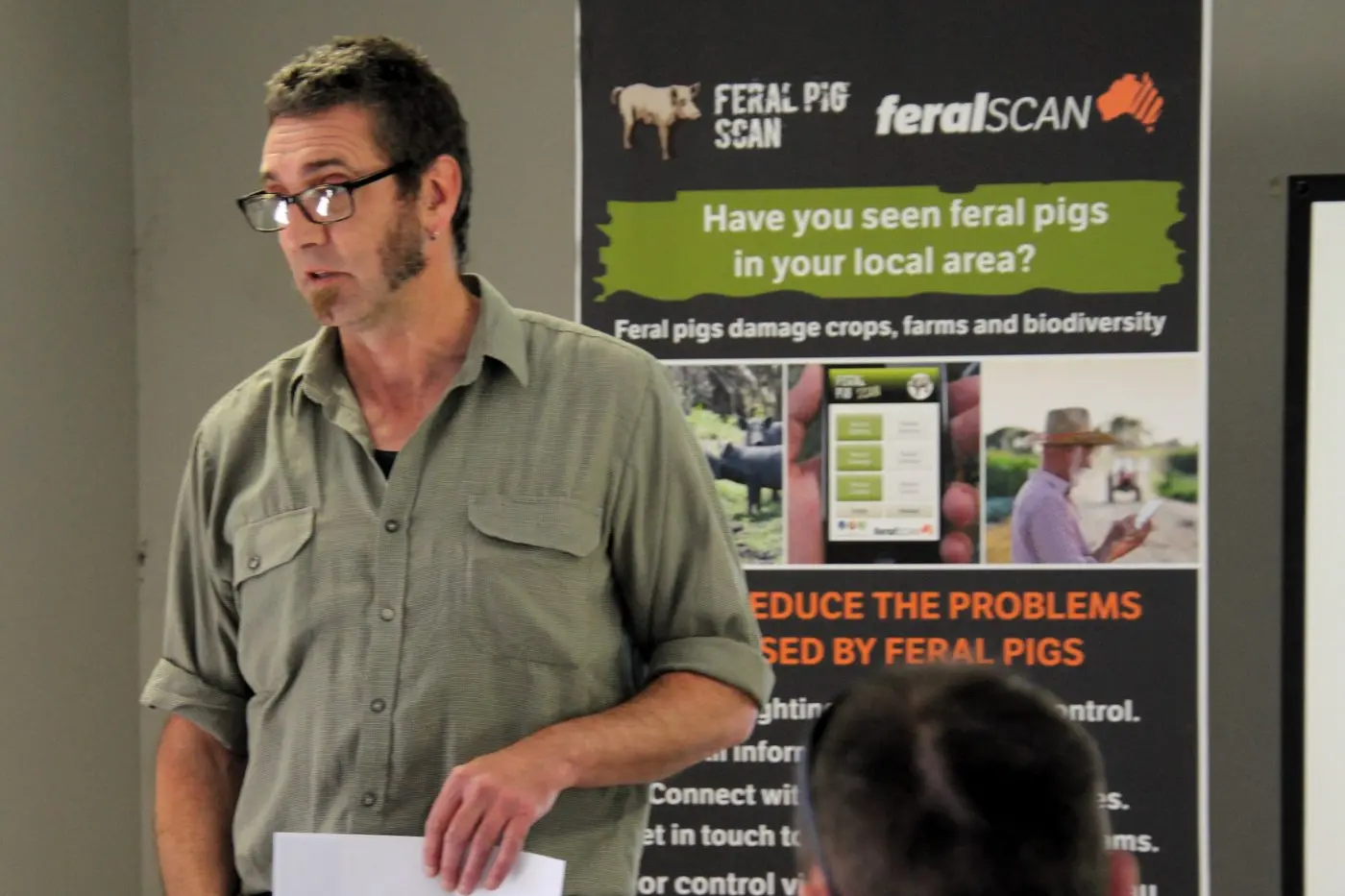PHOTO
FRONTLINE organisations protecting Victoria’s environment, agriculture industry, and cultural heritage from biosecurity threats are being backed by the state government to manage invasive weeds and pest animals following last month’s funding announcement by the minister for agriculture.
The minister Ros Spence revealed the 25 recipients of the third round of the $5 million Partnerships Against Pests grants program on December 11 with Mansfield’s Up2Us Landcare Alliance one of the successful applicants.
This funding will build on the work that Up2Us has done in the previous 12 months in an effort to support the management of invasive species, both animals such as feral pigs and plants including noxious weeds across the Mansfield Shire.
“This is recurring funding that we applied for last year; in the first year we launched the pilot program after being successful in round two funding,” said Up2Us project officer Rhiannon Quigley.
The announcement is good news for Ms Quigley whose role will continue to be funded until early 2026 to oversee the “People against pests in the Mansfield environment” project.
“It will allow us to encourage a continuous and ongoing process,” she said.
In the second round of funding in the previous year Up2Us asked for $40,000 but only received $25,000 so to be funded for almost double that amount $49,475 for one year is a pleasing outcome.
It is “recognition” of the work the alliance does said Ms Quigley.
“We also only focus on invasive animals and plants that are listed in the Victorian Catchment and Land Protection Act 1994,” she said.
Some of the areas that will be targeted in 2025 will be feral pigs which continues to be a growing problem in the district and dealing with rabbits.
“We will continue to work with DEECA’s (Department of Energy, Environment and Climate Action) community vertebrate pest management coordinator Mick Freeman and to advocate action on public land for feral pig control,” said Ms Quigley.
There will be a focus on invasive plant control for Paterson's Curse, saffron thistle a problem in the Glenroy Hills, gorse, cape broom, hawthorns, and willows across the district.
The Mansfield project has been funded to deliver a wide range of events and communication resources aimed at improving established invasive species management across the shire.
The project officer will be responsible for running three field days, three large acreage farmer discussion groups, one online seminar aimed at engaging with absentee landowners, a subsidised chemical use training course, and five multi-year land management plans for landowners.
“We are building these relationships with landholders and community groups to gain their respect and trust,” said Ms Quigley.
She noted the importance of maintaining the organisation’s integrity and to continue doing so.
Being able to create a data base of local landholders was also important she said when it came to applying for funding and being project ready.
Other successful recipients and projects in the north east included Swamps Rivers and Ranges Inc for “Collaborative change education on invasive species” ($32,180 over two years), Mudgegonga and District Landcare’s “Adopting best practice weed management” for local landholders ($11,400 over two years), and Parklands Albury Wodonga Ltd for “Applying technology to tackle invasive pest plants” ($25,000 over two years).
The Wodonga Urban Landcare Network has also secured funding of $44, 114 over one year for its "Healthy hectares - growing capacity against invasives on small blocks".
Grants ranging from $10,000 to $50,000 were available to various agricultural and environmental not-for-profit organisations, including Landcare groups and networks.
This funding is helping expand their influence across the state and strengthen partnerships with local communities.
“The Partnerships Against Pests grants program is a fantastic example of how we can support community groups to take the lead in managing biosecurity challenges at the local level,” said Minister Spence.
“By investing in projects that promote collaboration, education, and innovation, we’re not only addressing the impacts of invasive weeds and pest animals but ensuring our solutions are driven by those who know their local area best."

